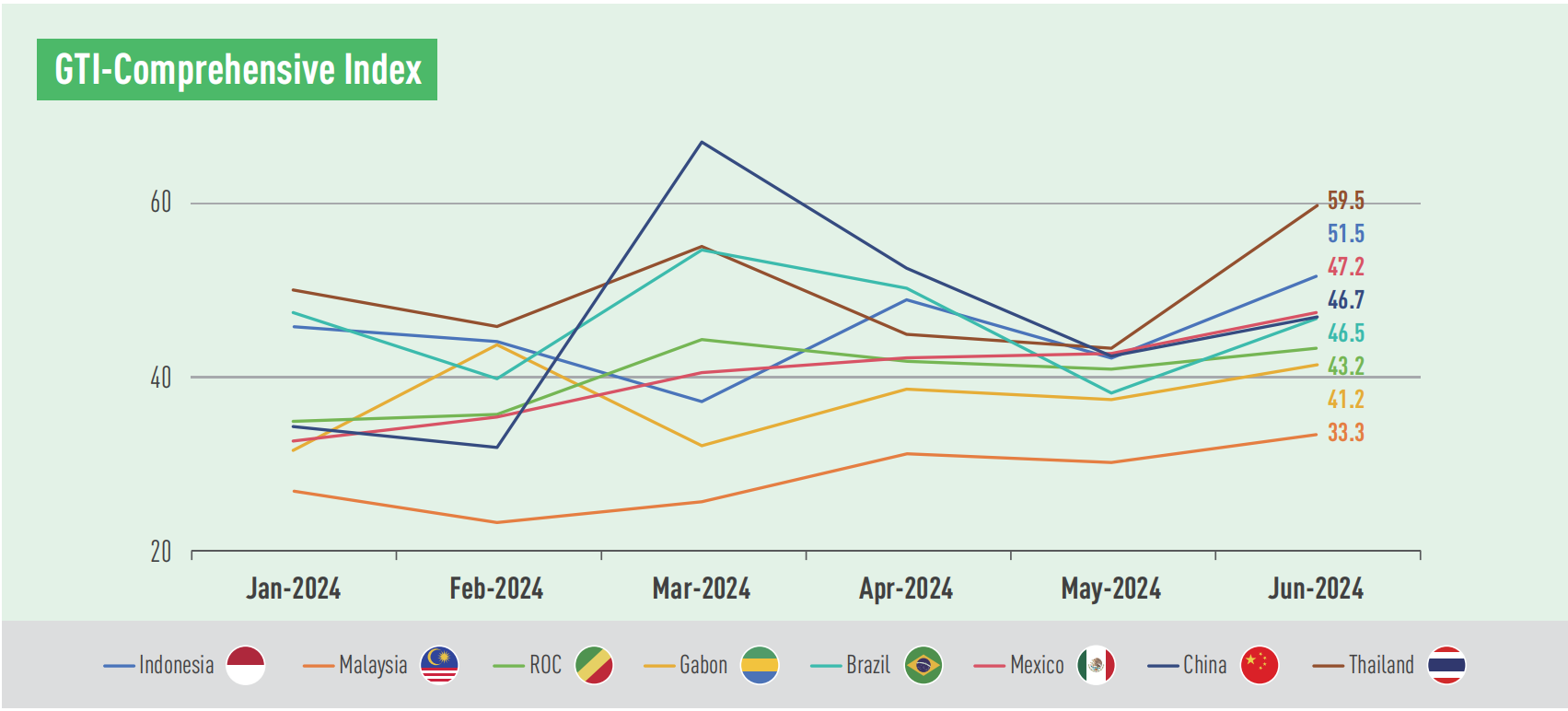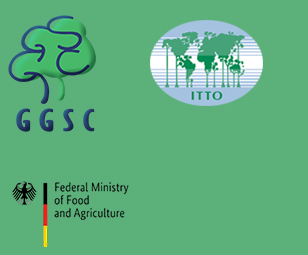

The Global Timber Index (GTI) Report for June 2024 brings encouraging news for the global timber sector, as it reveals that this month, the GTI indexes for all pilot countries increased compared with the previous month, and the GTI-Producers, a specialized index on timber production, increased by 8.8 percentage points from the previous month, all signaling a positive turnaround against the persistent downturn in the sector.
Notably, the GTI indexes for Thailand (59.5%) and Indonesia (51.5%) were above the critical value of 50%, with harvesting, orders and production all improving. The GTI indexes for Mexico, Brazil, Republic of the Congo, Gabon and Malaysia registered 47.2%, 46.5%, 43.2%, 41.2% and 33.3% respectively, representing an increase of 4.7, 8.6, 2.5, 4.0 and 3.2 percentage points over the previous month. By sub-index, the new orders for Mexican sample enterprises increased compared with the previous month, the production volume of Brazilian sample enterprises rose, and in the other countries, both timber production and orders showed a decrease in volume, however, the contraction eased. China's GTI index stood at 46.7%, an increase of 4.5 percentage points from the previous month, and the slowdown in effective demand and the sharp rise in shipping costs had a great impact on the timber enterprises.
This month, GTI pilot countries had also made encouraging progress in sustainable forest management. In order to align with the European Union Deforestation Regulation (EUDR), Indonesia was considering adjustments to land inventory measurement methods in the country, and Malaysia’s Sabah Forestry Department had officially launched a partnership with the European Union to update the Sabah Timber Legality Assurance System (TLAS). In Gabon, the Ministry of Water and Forests had bolstered the vehicle fleet to assist forest rangers in carrying out tasks in the field. This enhancement would help fight against illegal logging activities, protect flora and fauna, and would also allow the Ministry of Water and Forests to better support companies towards certification.
In some countries, new development opportunities had also emerged for the timber sector. In June, Claudia Sheinbaum was elected as the new President of Mexico. She announced that the new government would develop 10 additional Well-Being Development Hubs across the country, and according to her plans, these hubs would be integrated with 10 new industrial corridors, among which the Gulf Corridor (covering Veracruz, Tabasco, Chiapas, and Campeche) would prioritize industries such as timber. Recently, Brazilian Congress approved a new law whereby Environmental Impact Study (EIA) and the respective Environmental Impact Report (RIMA) are no longer required for the issuance of silviculture project’s environmental permit, while in practical terms, EIA/RIMA used to be a costly and time-consuming step in the environmental licensing process.

| E-mail:ggsc@itto-ggsc.org | Tel:86-10-62888626 |


Sigh Up for Emails |
|